Seattle is the most sustainable big city in the nation, according to a list compiled by Smarter Cities, an NRDC project that looks at the progress American cities are making toward going green. Not surprisingly, San Francisco and Portland are the runners-up.
Using data from the EPA and the U.S. Census Bureau, as well as some voluntary survey responses from city governments, the project identified the top 15 large, medium, and small cities according to 10 different environmental criteria, from air quality to recycling to transportation.
Here’s a look the top 15 large cities (population of 250,000 or more):
 It’s hard not to be environmentally minded in a city with views like this.Photo: Simonds1. Seattle
It’s hard not to be environmentally minded in a city with views like this.Photo: Simonds1. Seattle
The Emerald City gets props for its brand-new light rail system, reliance on hydroelectricity (and the resulting good air quality), Mayor Greg Nickels‘ U.S. Conference of Mayors Climate Agreement, and two global warming initiatives: Seattle Climate Action Now and Seattle Climate Partnership. Seattleites are described as “highly educated and environmentally minded.” Think it’s just a coincidence that Grist is headquartered here?
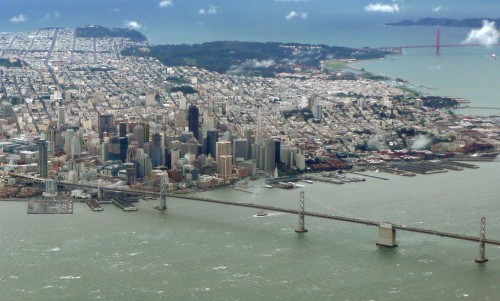 San Francisco is one of the most densely populated cities in the country.Photo: ATIS5472. San Francisco
San Francisco is one of the most densely populated cities in the country.Photo: ATIS5472. San Francisco
San Francisco’s dense population, walkability, plastic-bag ban, city-created carbon offset fund, solar power program, and booming local food movement propelled it to the No. 2 spot. (Read more about Mayor Gavin Newsom’s green efforts.)
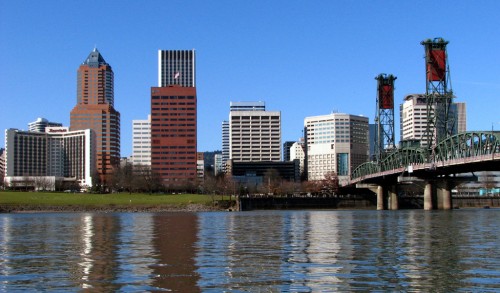 Portland has always been a leader in big-city sustainability.Photo: Ben Amstutz3. Portland
Portland has always been a leader in big-city sustainability.Photo: Ben Amstutz3. Portland
Seattle’s neighbor to the south got its light rail up and running more than 20 years ago, and the city has always been ahead of the curve on controlling urban sprawl and suppressing greenhouse-gas emissions. Portland’s residents also recycle more than half their waste.
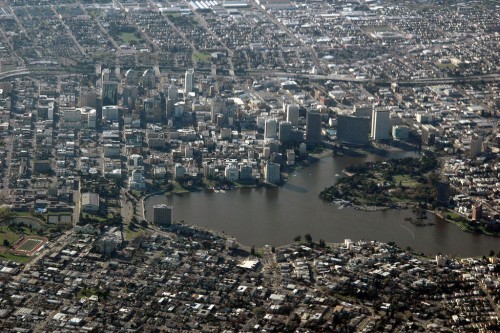 Oakland is making a green comeback.Photo: satanslaundromat4. Oakland, Calif.
Oakland is making a green comeback.Photo: satanslaundromat4. Oakland, Calif.
This once-struggling city has a Green Jobs Corps, a New Urbanist 10K Downtown Housing Initiative, a Zero Waste Plan, and a growing local food movement (as urban farmer Novella Carpenter explains). It also gets 17 percent of its electricity from renewable sources. Sounds like there is a there there.
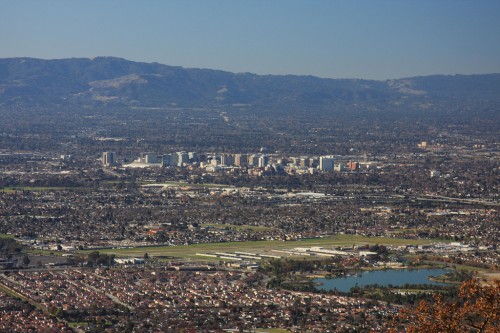 How green was my Silicon Valley?Photo: the_tahoe_guy5. San Jose, Calif.
How green was my Silicon Valley?Photo: the_tahoe_guy5. San Jose, Calif.
Always on the cutting edge of the high-tech world, this capital of Silicon Valley is fast on its way to leading the green-jobs revolution. Its Green Vision includes plans for bringing 25,000 new clean-tech jobs to the area.
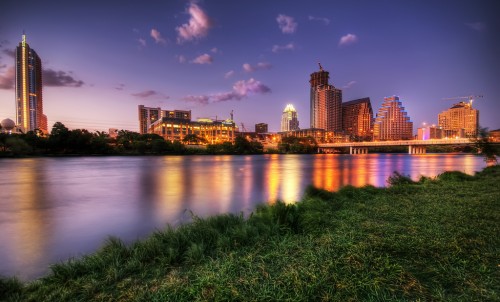 Austin’s new smart grid will light up the night — sustainably, of course.Photo: Visualist Images6. Austin, Texas
Austin’s new smart grid will light up the night — sustainably, of course.Photo: Visualist Images6. Austin, Texas
A liberal outpost in red Texas, this city owns its electric utility (meaning voters elect the utility’s board) and plans to adopt a smart grid in the near future.
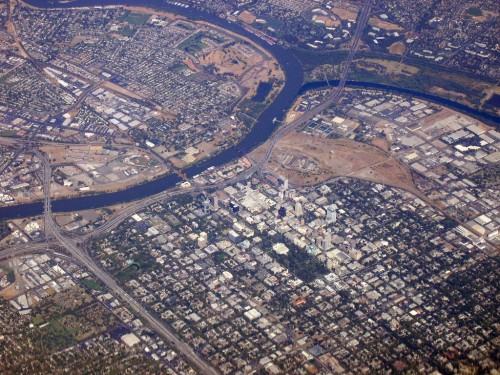 Sacramento aims to be green while it grows.Photo: kla40677. Sacramento, Calif.
Sacramento aims to be green while it grows.Photo: kla40677. Sacramento, Calif.
The Golden State’s capital, while suffering from the side effects of rapid population growth, has a progressive, publicly owned utility that, in addition to offering a 100 percent renewable power option, provides free trees to residents hoping to cool their homes with natural shade.
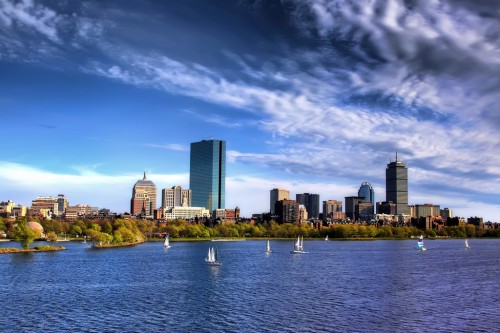 Boston stands out among less-green East Coast cities.Photo: werkunz18. Boston, Mass.
Boston stands out among less-green East Coast cities.Photo: werkunz18. Boston, Mass.
Boston’s push toward wind and solar energy, its efforts to become more bike-friendly, and its LED traffic lights make it a leader on the environmentally lagging East Coast.
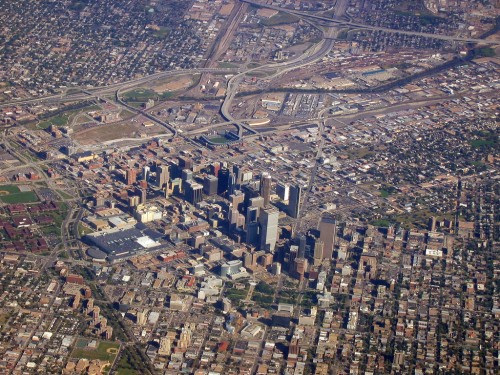 Denver conserves water like nobody’s business.Photo: kla40679. Denver, Colo.
Denver conserves water like nobody’s business.Photo: kla40679. Denver, Colo.
The Mile High City is already way ahead of its goals for reducing water consumption. Its new bike-sharing and composting programs and extensive system of city parks also helped it make the top 15.
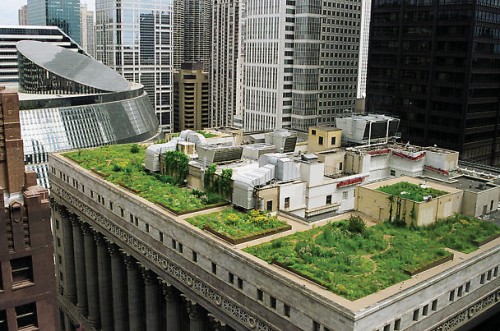 Chicago’s city hall has its own green roof.Photo: Smarter Cities10. Chicago
Chicago’s city hall has its own green roof.Photo: Smarter Cities10. Chicago
Always famous for its architecture, today Chicago has more LEED-certified buildings than any other U.S. city and boasts 300 green roofs. (Read more about Mayor Richard Daley’s green efforts.)
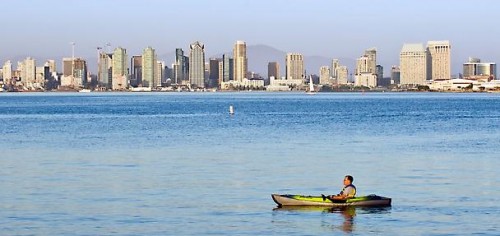 San Diego is growing smart.Photo: Smarter Cities11. San Diego
San Diego is growing smart.Photo: Smarter Cities11. San Diego
Parks and open spaces make up almost a quarter of this city’s land area, and its smart growth program has led to impressive developments.
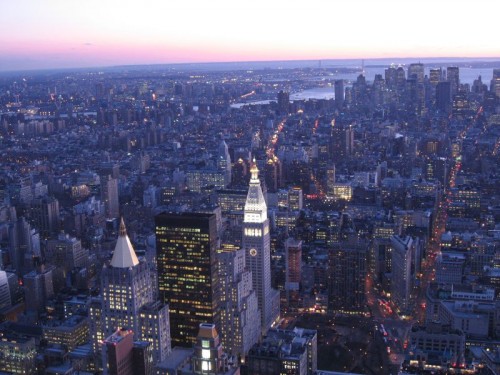 The Big (Green) Apple.Photo: mikeleeorg12. New York City
The Big (Green) Apple.Photo: mikeleeorg12. New York City
What it lacks in air quality and renewable energy it makes up for in density, walkability, and Mayor Bloomberg’s commitment to reducing the city’s carbon footprint. (Read more about Bloomberg’s green efforts.)
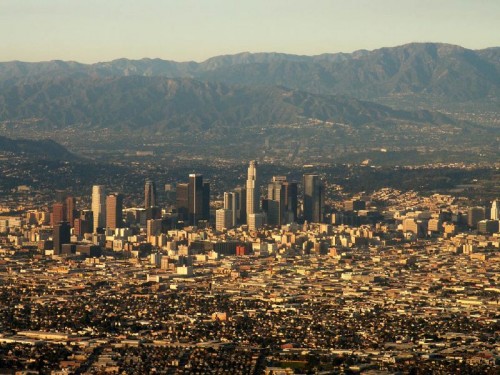 L.A. works to clear a path through the smog.Photo: Storm Crypt13. Los Angeles
L.A. works to clear a path through the smog.Photo: Storm Crypt13. Los Angeles
Infamous for its smog and clogged freeways, L.A. is making admirable efforts to switch to renewable energy and conserve its water supply.
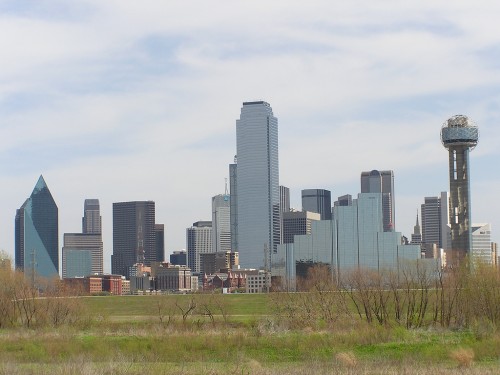 Big D: Greener than you’d think.Photo: dherrera_9614. Dallas
Big D: Greener than you’d think.Photo: dherrera_9614. Dallas
Dallas gets 40 percent of its electricity from wind, has seen a huge spike in public transit usage in recent years, and cracks down on lengthy truck idling during the “ozone season” from April to October.
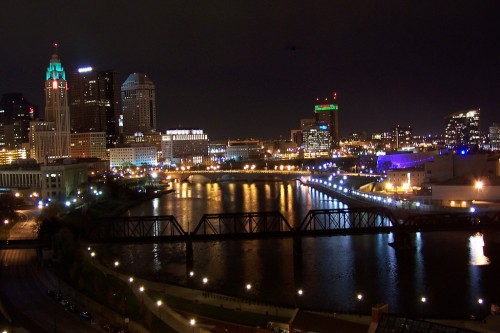 Columbus hopes for an urban resurgence.Photo: jpmueller9915. Columbus, Ohio
Columbus hopes for an urban resurgence.Photo: jpmueller9915. Columbus, Ohio
A perhaps unexpected entry on the list, flat Columbus lends itself to bike-friendliness. The city has also been working hard to revitalize its downtown core and combat sprawl.



